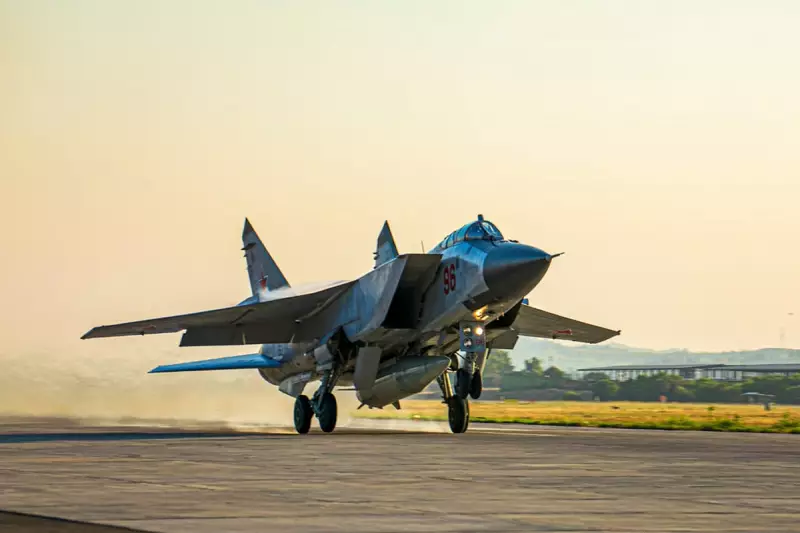
Estonia's defence forces have reported a significant breach of international airspace protocols after NATO Quick Reaction Alert (QRA) jets were scrambled to intercept a formation of Russian military aircraft approaching Estonian airspace.
The incident, which occurred over the Baltic Sea, involved an IL-20 intelligence gathering aircraft accompanied by SU-27 fighter jets. According to the Estonian military, the Russian aircraft were flying without transponder signals, flight plans, or radio contact – a clear violation of standard aviation safety procedures.
NATO's Immediate Response
The Estonian military command detected the approaching aircraft and immediately activated NATO's response protocol. German Eurofighter Typhoon jets stationed at Ämari Air Base were dispatched to identify and shadow the Russian formation.
The interception was conducted professionally, with NATO jets maintaining visual contact until the Russian aircraft altered course away from Estonian territory. No actual border violation occurred, but the provocative nature of the flight pattern raised serious concerns among defence officials.
Growing Tensions in Baltic Skies
This incident represents the first such interception reported by Estonia in 2024, continuing a pattern of increased Russian military activity near NATO borders. The Baltic Sea region has become a focal point for aerial confrontations, with similar incidents occurring regularly throughout 2023.
Defence analysts note that these flights serve multiple purposes for Russia:
- Testing NATO response times and procedures
- Gathering electronic intelligence on defence systems
- Demonstrating military capability in the region
- Probing air defence readiness
International Implications
The incident occurs amid heightened security concerns across Eastern Europe. NATO has significantly reinforced its eastern flank since Russia's invasion of Ukraine, with increased air policing missions and enhanced military presence.
Estonia, as a NATO member since 2004, operates under the alliance's collective defence principle – Article 5, which considers an attack on one member as an attack on all. While this incident didn't constitute an actual invasion, it demonstrates the ongoing tensions in the region.
Military experts emphasize that such intercepts are conducted under strict safety protocols to avoid accidental escalation, though the repeated nature of these incidents increases the risk of miscalculation or accident.





